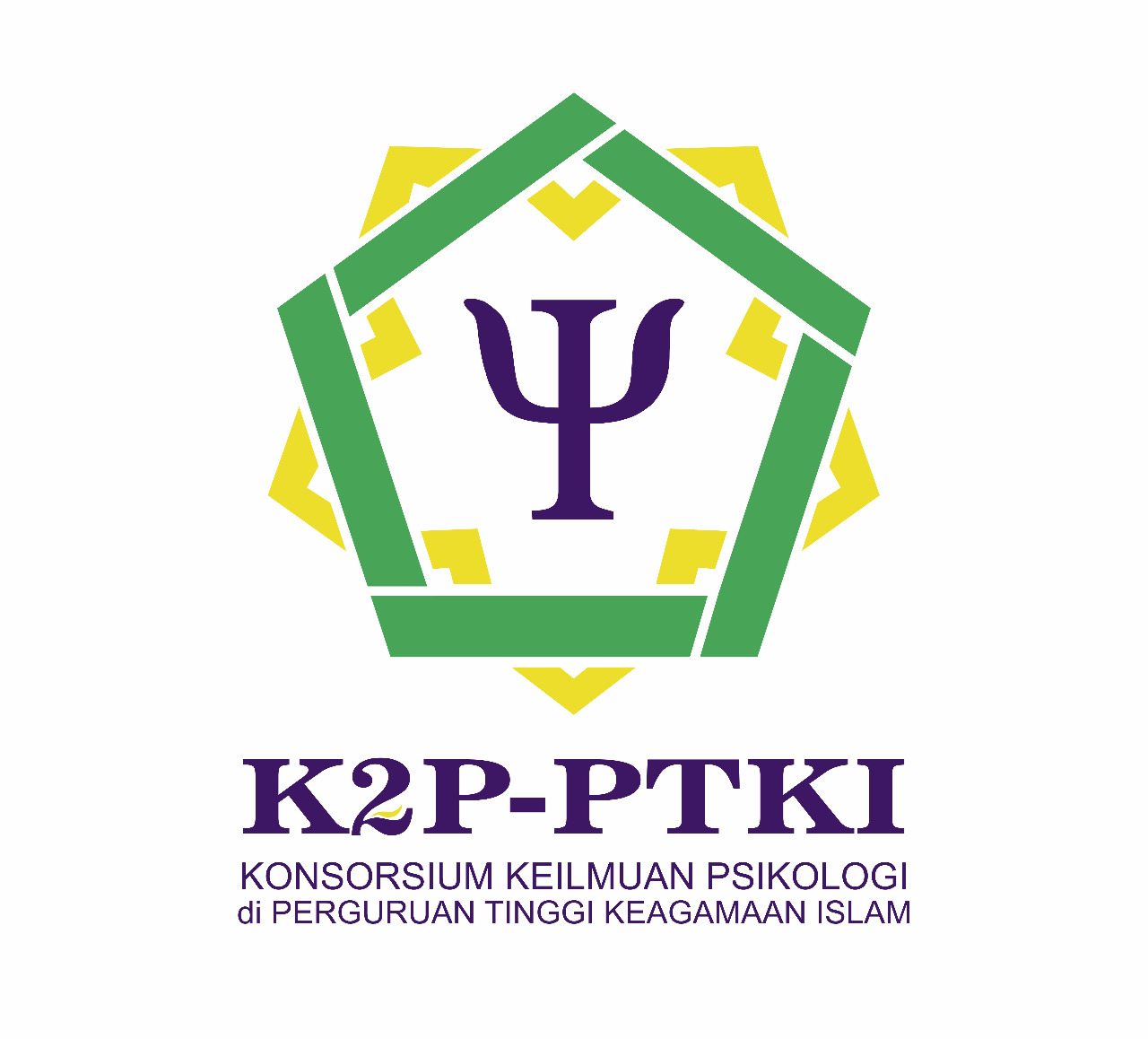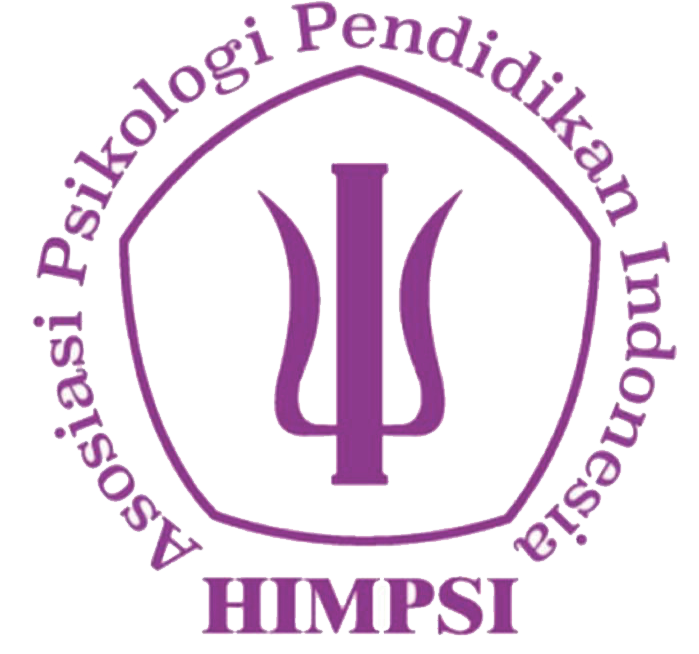Expressed Emotion as Moderator Between Openness to Experience and Help-Seeking Attitude Towards Telepsychology of Filipino Generation Zoomers
Abstract
Keywords: expressed emotion; generation z; help-seeking attitude; openness to experience; telepsychology
Keywords
Full Text:
PDFReferences
Alarcon, G. M., Capiola, A., & Pfahler, M. D. (2021). The role of human personality on trust in human-robot interaction. In Elsevier eBooks (pp. 159–178). https://doi.org/10.1016/b978-0-12-819472-0.00007-1
Al Omari, O., Khalaf, A., Al Sabei, S., Al Hashmi, I., Al Qadire, M., Joseph, M., & Damra, J. (2022). Facilitators and barriers of mental health help-seeking behaviours among adolescents in Oman: a cross-sectional study. Nordic Journal of Psychiatry, 1–11. https://doi.org/10.1080/08039488.2022.2038666
American Psychological Association (2015). APA Dictionary of Psychology (2nd ed., p. 417). American Psychological Association 750 First Street, NE Washington, DC 20002
American Student Assistance. (2021). ASA whitepaper: How gen z approaches decision-making. https://www.asa.org/research/how-gen-z-approaches-decision-making-asas-new-whitepaper-dives-into-young-peoples-thought- processes/
Antonio, C & Rivera, A. (2017). Mental health stigma among Filipinos: time for a paradigm shift.
Bacıoğlu, S and Kocabıyık,O . (2019). Counseling trainees’ views towards usage online counseling in psychological services.
Bethune, S. (2019). Gen Z more likely to report mental health concerns.
Big Five Personality Tests. (2022). Truity. https://www.truity.com/view/tests/big-five- personality
Blaisdell, P. (2021). Why Telehealth for Colleges and Universities is the Right Choice. Brown GW. Experiences of discharged chronic schizophrenic mental hospital patients in various types of living groups.
Cekici, F. (2019). The relationships between the big five personality traits and attitudes towards seeking professional psychological help in mental health counselor candidates: Mediating effect of cognitive flexibility.
Chapin, A & McClure,K.(2020). An examination into the factors of stigma toward help seeking attitudes in college student Athletes.
Chiappelli et.al. (2021). Stressful life events and openness to experience: Relevance to depression. https://www.sciencedirect.com/science/article/pii/S016503 2721009174
Chiauzzi E, Clayton A, Huh-Yoo J. (2020). Video conferencing-based telemental health: important questions for the covid-19 era from clinical and patient- centered perspectives jmir ment health. 7(12)
Coe,E., Doy, A., Enomoto, K.,Healy, C., (2023). Gen Z mental health: The impact of tech and social media.
Cooper, N. (2022). Convenience sampling - tips and advantages in quantitative research. The Academic Papers UK.
Cuncic, A. (2021). Why gen Z is more open to talking about their mental health. https://www.verywellmind.com/why-gen-z-is-more-open-to-talking-about-their- mental-health-5104730
Di Carlo F., Sociali A., Picutti E., Pettorruso M., Vellante F., Verrastro V., Martinotti G., di Giannantonio M. (2021). Telepsychiatry and other cutting‐edge technologies in COVID‐19 pandemic: bridging the distance in mental health assistance. Int. J. Clin. Pract. ;75(1)
Doll, C. M., Michel, C., Rosen, M., Osman, N., Schimmelmann, B. G., & Schultze- Lutter, F. (2021). Predictors of help-seeking behaviour in people with mental health problems: a 3-year prospective community study. BMC Psychiatry, 21(1).https://doi.org/10.1186/s12888-021-03435-4
Eguia, K & Capio, C. (2022, January 12). Teletherapy for children with developmental disorders during the COVID-19 pandemic in the Philippines: A mixed-methods evaluation from the perspectives of parents and therapists.
Fisk M., Livingstone A., Pit S.W. (2020). Telehealth in the context of COVID-19: changing perspectives in Australia, the United Kingdom, and the United States. J. Med. Internet Res; 22(6)
Gali,C. (2022). History of telemedicine. https://blog.curogram.com/history-of- telemedicine
Hayes, A. F. (2018). Introduction to mediation, moderation, and conditional process analysis. a regression-based approach (2nd ed.). New York, NY The Guilford Press. - References - Scientific Research Publishing. (n.d.). https://www. scirp.org/reference/ReferencesPapers.aspx?ReferenceID=24175 17
Hinojosa-Marqués, L., Domínguez-Martínez, T., Kwapil, T. R., & Barrantes-Vidal, N. (2019). Ecological validity of expressed emotion in early psychosis. Frontiers in Psychiatry, 10.https://doi.org/10.3389/fpsyt.2019.00854 59
Howren, M. B., Castagna, N., & Katz, P. R. (2021). Openness to use of telehealth during and after the COVID-19 pandemic in a sample of rural older adults in a federally qualified health center. Journal of the American Medical Directors Association, 22(9), 1856–1857.https://doi.org/10.1016/j.jamda.2021.06.028
Icenogle, G., Steinberg, L., Duell, N., Chein, J., Chang, L., Chaudhary, N., Di Giunta, L., Dodge, K. A., Fanti, K. A., Lansford, J. E., Oburu, P., Pastorelli, C., Skinner, S. M., Takash, H. M. S., & Bacchini, D. (2019). Adolescents’ cognitive capacity reaches adult levels prior to their psychosocial maturity: evidence for a “maturity gap” in a multinational, cross-sectional sample. Law And Human Behavior, 43(1), 69–85.https://doi.org/10.1037/lhb0000315
Kumar, A., Srivastava, M., Ranjan, L. K., & Bhattacharjee, D. (2021). Perceived social support and self-stigma among schizophrenia and BPAD patients with psychiatric hospitalization. International Journal of Indian Psychology, 9(1).https://doi.org/10.25215/0901.155
Lim, A. G. (2023). Big five personality traits: the 5-factor model of personality. Simply Psychology. lity.html https://www.simplypsychology.org/big-five- persona
Martinez, A.B., Co, M., Lau, J. et al. Filipino help-seeking for mental health problems and associated barriers and facilitators: a systematic review. Soc Psychiatry Psychiatr Epidemiol 55, 1397–1413 (2020).https://doi.org/10.1007/s00127- 020-01937-2
Mazza, C., Formica, F., Ferracuti, S., Ricci, E., Colasanti, M., Biondi, S., … Roma, P. (2022). High expressed emotion (HEE), assessed using the five-minute speech sample (fmss), as a predictor of psychiatric relapse in patients with schizophrenia and major depressive disorder: a meta-analysis and meta- regression. Journal of Clinical Medicine, 11(21), 6533. https://doi.org/10.3390/ jcm11216533
McCord, C., Bernhard, P., Walsh, M., Rosner, C., & Console, K. (2020). A consolidated model for telepsychology practice. Journal of Clinical Psychology, 76(6).https://doi.org/10.1002/jclp.22954
McLeod, S. (2021). Social influence. Simply Psychology.
Ng et.al. (2020). High level of expressed emotions in the family of people with schizophrenia: has a covert abrasive behaviors component been overlooked? https://www.sciencedirect.com/science/article/pii/S2405844020322842
O’Brien M., McNicholas F. The use of telepsychiatry during COVID-19 and beyond. Ir. J. Psychol. Med. 2020;37(4):250–255. Orji, L. (2021, June). Help-seeking attitude for mental health among young adults: psycho-educational intervention [review of help-seeking attitude for mental health among young adults: psycho-educational intervention]. Christopher University Mowe, Ogun State, Nigeria.
Park, S., Jeon, M., Lee, Y., Ko, Y.-M., & Kim, C. E. (2018). Influencing factors of attitudes toward seeking professional help for mental illness among Korean adults. International Journal of Social Psychiatry, 64(3), 286–292.https://doi.org/10.1177/0020764018760952
Pierce, B. S., Perrin, P. B., & McDonald, S. A. (2020). Path analytic modeling of psychologists’ openness to performing clinical work with telepsychology: a national study. Journal of ClinicalPsychology.https://doi.org/10.1002/jclp.22851
Quiring, J.S. (2020, January). Telepsychiatry exposure, interest, and intention touse among young psychiatrists in the Philippines. https://phjpsy chiatry.org/ articles-and-issues/pjp-2020/telepsychiatry- exposure-interest-and- intention to-use-among-young-psychiatrists-in-the- philippines/
Rala, CJ et al. (2021). Factors bridging the satisfaction of generational gap in Philippine healthcare system telemedicine use. http://ieomsociety.org/proceedings/2021monterrey/433.pdf
Ramalho R., Adiukwu F., Gashi Bytyçi D., El Hayek S., Gonzalez-Diaz J.M., Larnaout A., Grandinetti P., Kundadak G.K., Nofal M., Pereira-Sanchez V., Pinto da Costa M., Ransing R., Schuh Teixeira A.L., Shalbafan M., Soler-Vidal J., Syarif Z., Orsolini L. Telepsychiatry and healthcare access inequities during the COVID-19 pandemic. Asian J. Psychiatry. 2020;53
Rath, N., & Mohapatra, S. (2021). Expressed emotion in psychiatric disorders. Eastern Journal of Psychiatry, 16 (1-2), 17–22.https://doi.org/10.5005/ejp-16- 1--2 17
Regions of the Philippines – PhilAtlas. (n.d.). Www.philatlas.com. https://www.philatlas.com/regions.html
Sadath, A., Kumar, R. L., & Karlsson, M. (2019). Expressed emotion research in india: a narrative review. Indian Journal of Psychological Medicine, 41(1), 18–26.https://doi.org/10.4103/ijpsym.ijpsym_235_18
Samari, E., Teh, W. C., Roystonn, K., Devi, F., Cetty, L., Shahwan, S., & Subramaniam, M. (2022). Perceived mental illness stigma among family and friends of young people with depression and its role in help-seeking: a qualitative inquiry. BMC Psychiatry, 22(1).https://doi.org/10.1186/s12888-022- 03754-0
Samuel,R & Kamenetsky, S. (2022). Help-seeking preferences and factors associated with attitudes toward seeking mental health services among first year undergraduates.https://files.eric.ed.gov/fulltext/EJ1350851.pdf
Schatzberg, A. (2022). Gen Z’s Demands for mental health care. Valant.https://www.valant.io/resources/blog/gen-zs-demands-for-mental- health-care- understanding-the-new-generation/ 61
Stanford University. (2022). Why asking for help is hard, but people want to help more than we realize | Stanford News. Stanford News. https://news.stanford. edu/2022/09/08/asking-help-hard-people-want-help- realize
Stratton, S. J. (2021). Population research: convenience sampling strategies. Prehospital and Disaster Medicine, 36(4), 373–374. Cambridge. https://doi.org/10.1017/S1049023X21000649
Subingsubing, K (2023). Cost, stigma keeping Filipinos off mental health services. https://newsinfo.inquirer.net/1758682/cost-stigma-keeping-filipinos- off- mental-health-services Sugarman DE, Horvitz LE, Greenfield SF, Busch AB. Clinicians' Perceptions of Rapid Scale-up of Telehealth Services in Outpatient Mental Health Treatment. Telemed J E Health. 2021 Dec;27(12):1399-1408.
Sutton, J., PhD. (2023). What is openness to experience & how do we measure it? PositivePsychology.com. https://positivepsychology.com/openness-to- experience/Tanaka, C., Tuliao, M. T. R., Tanaka, C., Tuliao, M.T.R.,
Tanaka, E. et al. A qualitative study on the stigma experienced by people with mental health problems and epilepsy in the Philippines. BMC Psychiatry 18, 325 (2018). https://doi.org/10.1186/s12888- 018-1902-9
Tanaka, E., Yamashita, T., & Matsuo, H. (2018). A qualitative study on the stigma experienced by people with mental health problems and epilepsy in the Philippines. BMC Psychiatry, 18(1). https://doi.org/10.1186/s12888-018-1902
Tesfaye, Y., Agenagnew, L., Tucho, G. T., Anand, S. A., Birhanu, Z., Ahmed, G., Getenet, M., & Yitbarek, K. (2020). Attitude and help-seeking behavior of the community towards mental health problems.
There May Be a Generation Gap in Telehealth’s Future | AHA. (2021). Www.aha.org. https://www.aha.org/aha-center-health-innovation-market-scan/2021-06-29-there-may-be-generation-gap-telehealths-future
Torres, L et.al (2020). Assessing the psychometric properties of the attitudes toward seeking professional psychological help scale-short from (atspph- sf) among latino adults. https://journals.sagepub.com/doi/10.1177/1073191119899470?fbclid=IwAR0H4PYiElAHtd8I8lp1HcmK-
Varker, T., Brand, R.M., Ward, J., Terhaag, S., & Phelps, A. (2018). Efficacy of synchronous telepsychology interventions for people with anxiety, depression, posttraumatic stress disorder, and adjustment disorder: A rapid evidence assessment. Psychological Services. Advance online publication.http://dx.doi.org/10.1037/ser000023 62
Vejano, J.M.G., Ibarondo, H.I.S., Diaz, P.K.M., & Barcos, A.J.S., (2021). Attitude and help-seeking behavior of gen z towards mental health: an assessment. Universitas, 9(2), 1–1. https://www.ejournals.ph/article.php?id=17650
Wang,J., Guangzhe.F., Xinyi,S. ,Aoyi, T., Wei, S., (2022). Factors influencing attitude towards cyber-counseling among China’s Generation Z: a structural equation model. https://www.sciencedirect.com/science/article/pii/0883941722000838
Orcena, A et.al (2021). How to handle family members who deny mental illness. evolve treatment centers. https://evolvetreatment.com/blog/family-denies-mental- illness/
Worthington, A. K. (2021). Theory of planned behavior. Ua.pressbooks.pub. https://ua.pressbooks.pub/persuasiontheoryinaction/chapter/theory-of- planned-behavior/
Yimam, et.al (2022). Expressed emotion of caregivers among schizophrenia patients visiting Jimma University Medical Center Psychiatry Outpatient Unit, Southwest Ethiopia. https://pubmed.ncbi.nlm.nih.gov/35850769/
Yu, J., & Bekerian, D. A. (2023). Telemental health and diverse populations amid Covid-19. Encyclopedia, 3(1), 267–278. https://doi.org/10.3390/encyclo pedia3010017
DOI: https://doi.org/10.18860/psikoislamika.v21i1.26753

This work is licensed under a Creative Commons Attribution-NonCommercial-ShareAlike 4.0 International License.

------------------------------------------------------------------------------------------

pSIKOISLAMIKA by http://ejournal.uin-malang.ac.id/index.php/psiko is licensed under a Creative Commons Attribution-NonCommercial-ShareAlike 4.0 International License.


.jpg)


.jpg)





